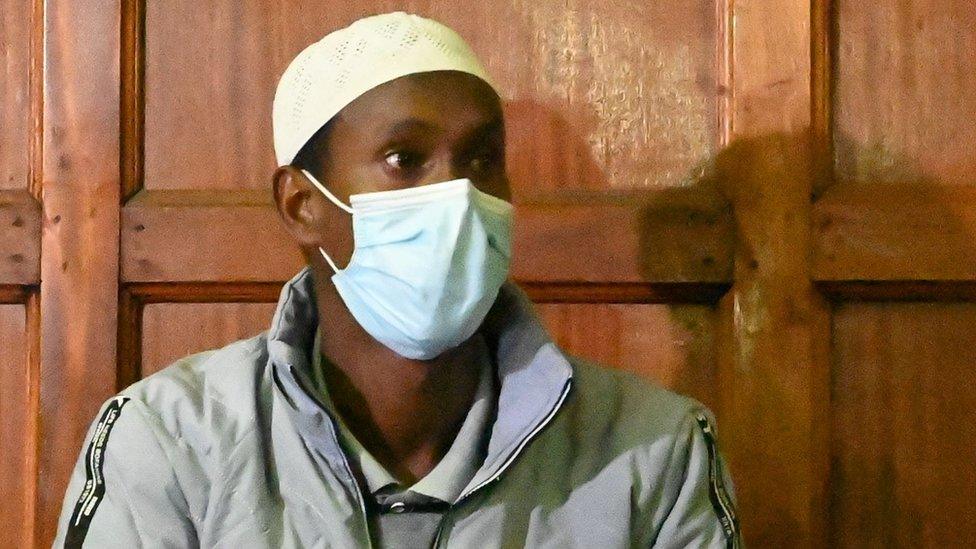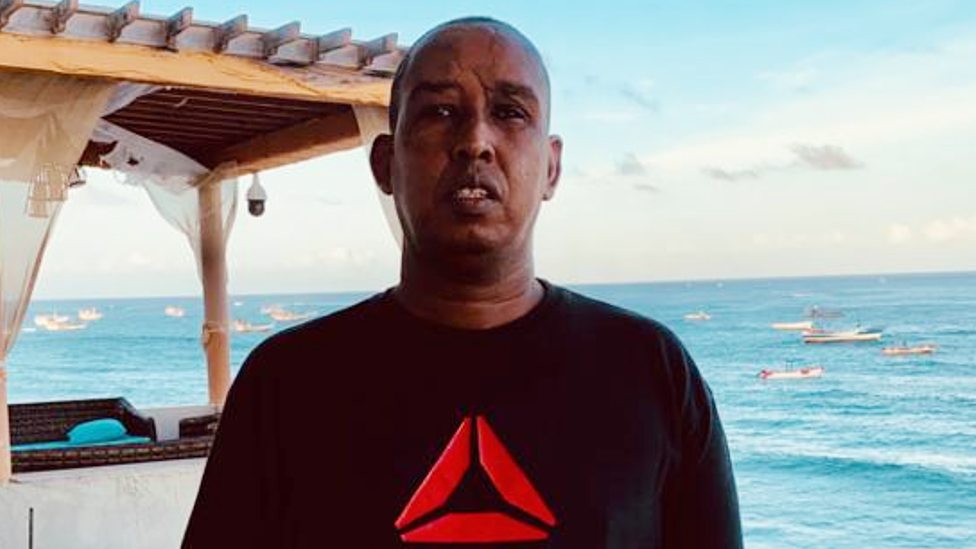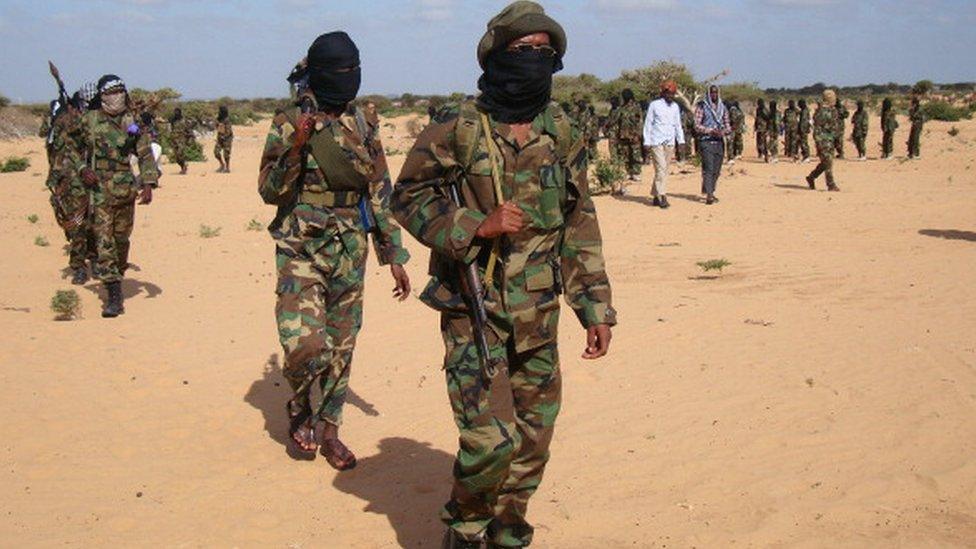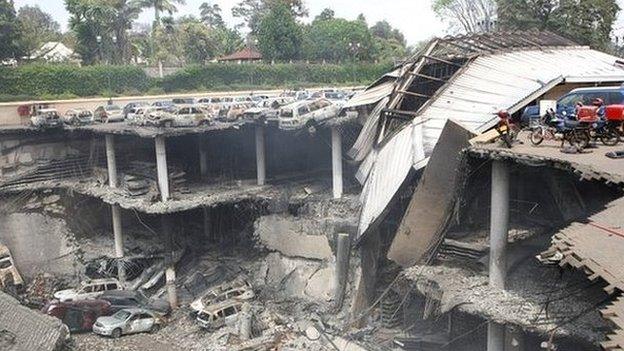Kenya's Westgate trial: Man cleared of terrorism ‘seized by armed men'
- Published

Liban Abdullahi Omar was found not guilty on terrorism charges on Wednesday
A man who was cleared of terrorism charges over the 2013 Westgate shopping mall attack in Kenya has been abducted by unknown gunmen.
On Wednesday, two men were convicted over the attack in the capital, Nairobi, which saw more than 71 dead.
The third on trial, Liban Abdullahi Omar, whose brother was one of the attackers killed in the raid on the mall, was found not guilty.
But witnesses say the next day gunmen stopped his taxi and abducted him.
Mr Omar, a Somali refugee in Kenya, had just left anti-terror police offices in Nairobi when he was seized, according to Khelef Khalifa, the director of the NGO Muslims for Human Rights.
He had been released from the Kamiti Maximum Prison and was going through clearance at the anti-terror office, as is the procedure with terror suspects.
'Men said they were security agents'
Mr Khalifa said hooded gunmen dressed in black intercepted Mr Omar's taxi.
His lawyer, Mbugua Mureithi, told the Kenyan TV channel NTV that the men identified themselves as security agents.
Police have declined to comment.

Who was behind the abduction?
By Ferdinand Omondi, BBC News, Nairobi
No-one is saying it loudly. No-one wants to admit it.
But there is a quiet consensus that the bold, armed daylight abduction of Liban Abdullahi Omar could only have been carried out by people connected to the anti-terror police.
Many Kenyan terror suspects who have escaped, or have been found not guilty, have ended up disappearing never to be seen again, or killed in cold blood by people the authorities have never identified, charged or arrested.
Human rights organisations here blame security agents for hundreds of extrajudicial killings and disappearances, with Amnesty International consistently reminding police that they cannot be judge, jury and executioner.
The police have always denied being behind the killings and abductions.

What happened at Westgate?
On a Saturday afternoon in September 2013, gunmen entered the mall and opened fire on shoppers, leading to a four-day siege.
What happened at Westgate?
"People were panicking, children were crying," survivor Surajit Borkakyoty told the BBC that day.
"We were trying to calm people and tell them not to use their phones, or to keep them on silent. All the time we could hear gunfire. It was a war-like situation."
Live television broadcasts showed smoke billowing from the complex, as armed police and military vehicles surrounded the site and dozens of terrified people escaped.
When it was over days later, at least 67 people had been killed - 62 civilians, five security officers - along with the four attackers.
The Somali Islamist militant group Al-Shabab said it carried out the attack in response to Kenyan military operations in Somalia.
Initially the authorities said there had been 10 attackers, but then revised the figure down to four. They said all of them had been killed but forensic tests on their remains have never been released.
On Wednesday Mohammed Ahmed Abdi and Hussein Hassan Mustafa were convicted of planning and committing acts of terror, as well as supporting and helping a terrorist group.
They will be sentenced on 22 October.
- Published19 August 2020

- Published22 December 2017

- Published21 September 2014
